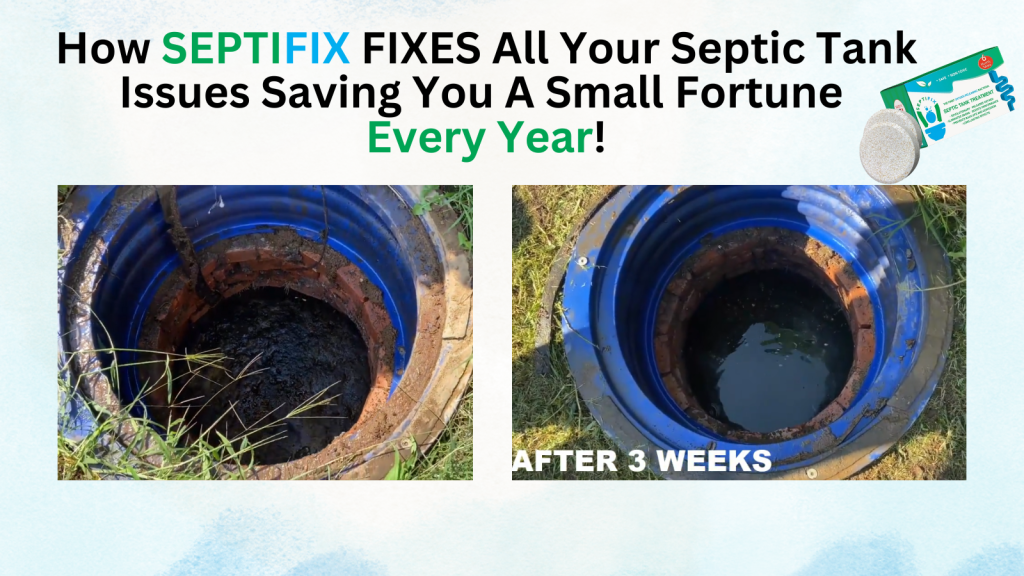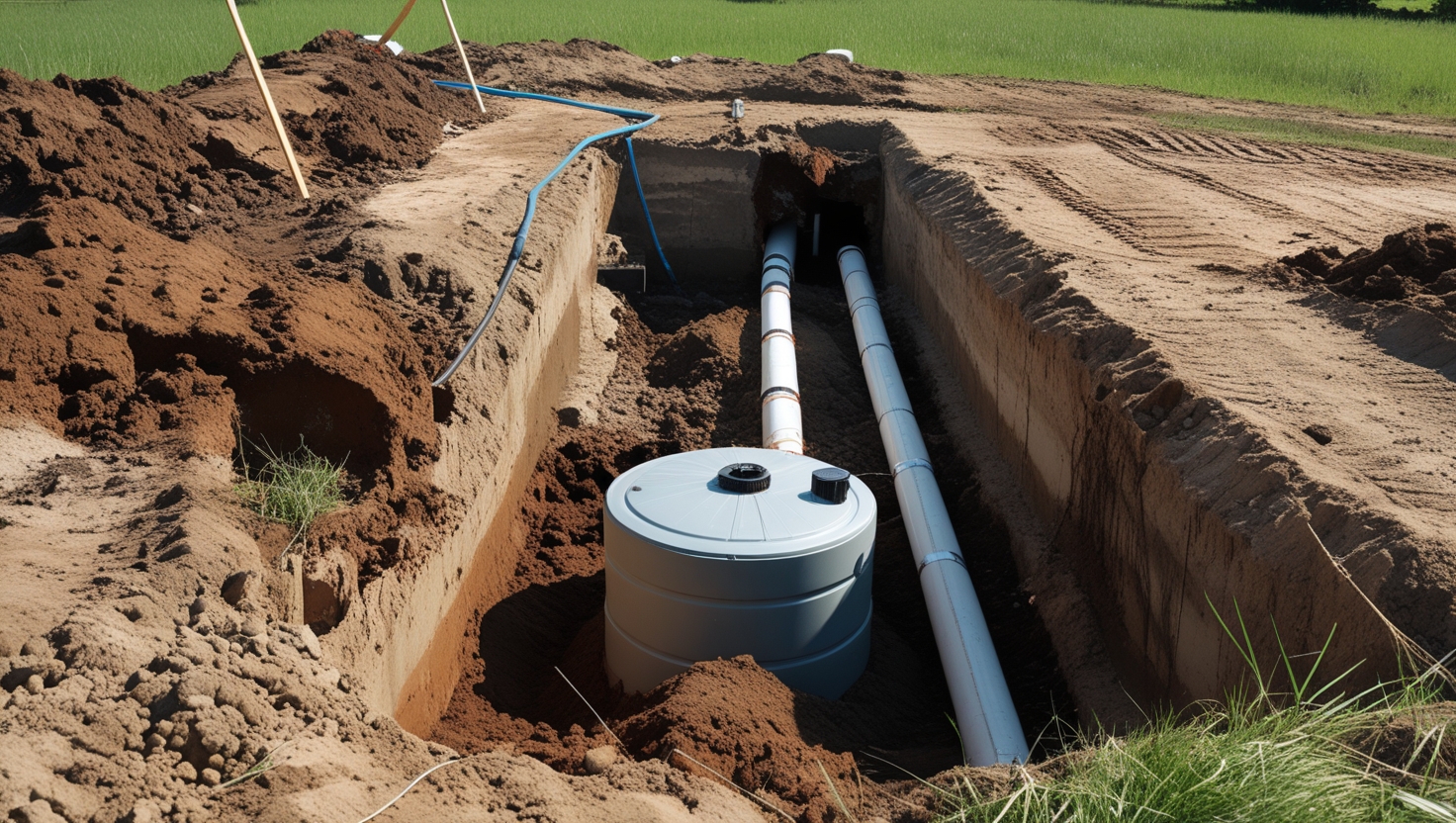Table of Content
- What Qualifies as an Illegal Septic System?
- Penalty for Illegal Septic System: Fines, Fees, and Legal Consequences
- How Do Authorities Discover Illegal Septic Systems?
- How to Avoid Getting Penalized
- Real-World Example
- Contact Info and Resources
- Conclusion: Play It Safe to Avoid Penalties
- Septifix Works Every Time
- Septic Permit Links by State
Installing or modifying a septic system without the proper permits or inspections can lead to serious legal and financial trouble. The penalty for illegal septic system violations varies by state, but homeowners risk hefty fines, system removal, property liens, or even criminal charges.
Whether you’re a DIY enthusiast or a new homeowner, learning what qualifies as illegal—and how to stay compliant—can help you avoid big headaches. This guide covers the most common violations, the consequences, and how to protect yourself legally and financially.
What Qualifies as an Illegal Septic System?
Not every septic tank installation is legal. These are common examples of systems that break the law:
- Unpermitted installations: Installing a system without health department approval
- Non-compliant designs: Using materials or layouts that don’t meet code
- Improper repairs or modifications: Skipping inspections or hiring unlicensed help
- Neglected maintenance that causes failure or contamination
- Unauthorized discharge: Letting wastewater flow into the ground or nearby water sources
In many states, skipping permits or inspections makes the system illegal, even if it appears to function properly.
Penalty for Illegal Septic System: Fines, Fees, and Legal Consequences
Civil and Financial Penalties
Civil and Financial Penalties
The financial hit can be steep. Local health departments and environmental agencies typically issue penalties like:
- Daily fines from $500 to $25,000
- Violation fees tied to permit and inspection avoidance
- Back charges for testing and overdue paperwork
- Costs for legal removal or reconstruction of the system
For instance, in Florida, homeowners may face over $10,000 in fines and a stop-use order. In California, the county could also charge for environmental cleanup related to the system’s impact.
Legal and Criminal Charges
Some cases move beyond fines—especially when the system damages the environment:
- Prosecutors may file misdemeanor or felony charges
- Courts can demand site remediation or full system removal
- Neighbors can sue if your system affects their health or property
In more severe cases, authorities might place a lien on your property until you pay fines and bring the system up to code.
How Do Authorities Discover Illegal Septic Systems?
Illegal systems don’t stay hidden forever. Here’s how officials usually find them:
Property Sales and Transfers
Real estate deals often uncover noncompliance. Home inspections or title checks can reveal unapproved systems or missing permits.
Complaints from Neighbors
If sewage odors, leaks, or standing water appear, neighbors may report it, prompting a health department investigation.
Environmental Monitoring
Local governments use tools like aerial imaging, groundwater testing, or drone surveys to spot illegal waste discharge.
How to Avoid Getting Penalized
If you’re planning to install or replace a septic system (also called an on-site wastewater treatment system), these steps will help you stay legal:
Always Get the Required Permits
Before any digging begins, check with your local health department or building authority. Most jurisdictions require:
- Site evaluation and percolation testing
- System design approval
- Permitting and fee payment
- Final inspection before use
Work with a Licensed Professional
Avoid the temptation to go DIY. Hire a licensed septic contractor familiar with local codes and requirements.
Maintain Your System Properly
Even a legal system can become a liability if it’s neglected. Pump it every 3–5 years and avoid putting grease, wipes, or chemicals into your drains.
Real-World Example
In 2022, a rural homeowner in North Carolina was fined over $15,000 for building a septic system without a permit and discharging wastewater into a nearby creek. Not only did the homeowner have to pay the fine, but they were also ordered to hire a licensed contractor to remove and rebuild the entire system—at their own expense.
Contact Info and Resources
Need help navigating local regulations? Start here:
- EPA Septic Smart Program – Education on proper septic system use and laws
- National Onsite Wastewater Recycling Association (NOWRA) – Find certified professionals by state
- Your county health department – Call or visit their website for regional permits and rules
- State environmental agency – Many offer online databases to verify legal septic designs and installers
- Septic installer directories – Search for licensed contractors in your area on odorfreeseptic.com
Conclusion: Play It Safe to Avoid Penalties
The penalty for illegal septic system installation or use can be devastating—from fines and legal charges to environmental harm and property value loss. The good news? You can avoid all of it by following your local permitting process and hiring qualified professionals.
If you’re unsure about your system’s legality, get it inspected. It’s cheaper than waiting for a fine or lawsuit. Protect your home, your wallet, and your community’s health—play by the rules.
Septifix Works Every Time










